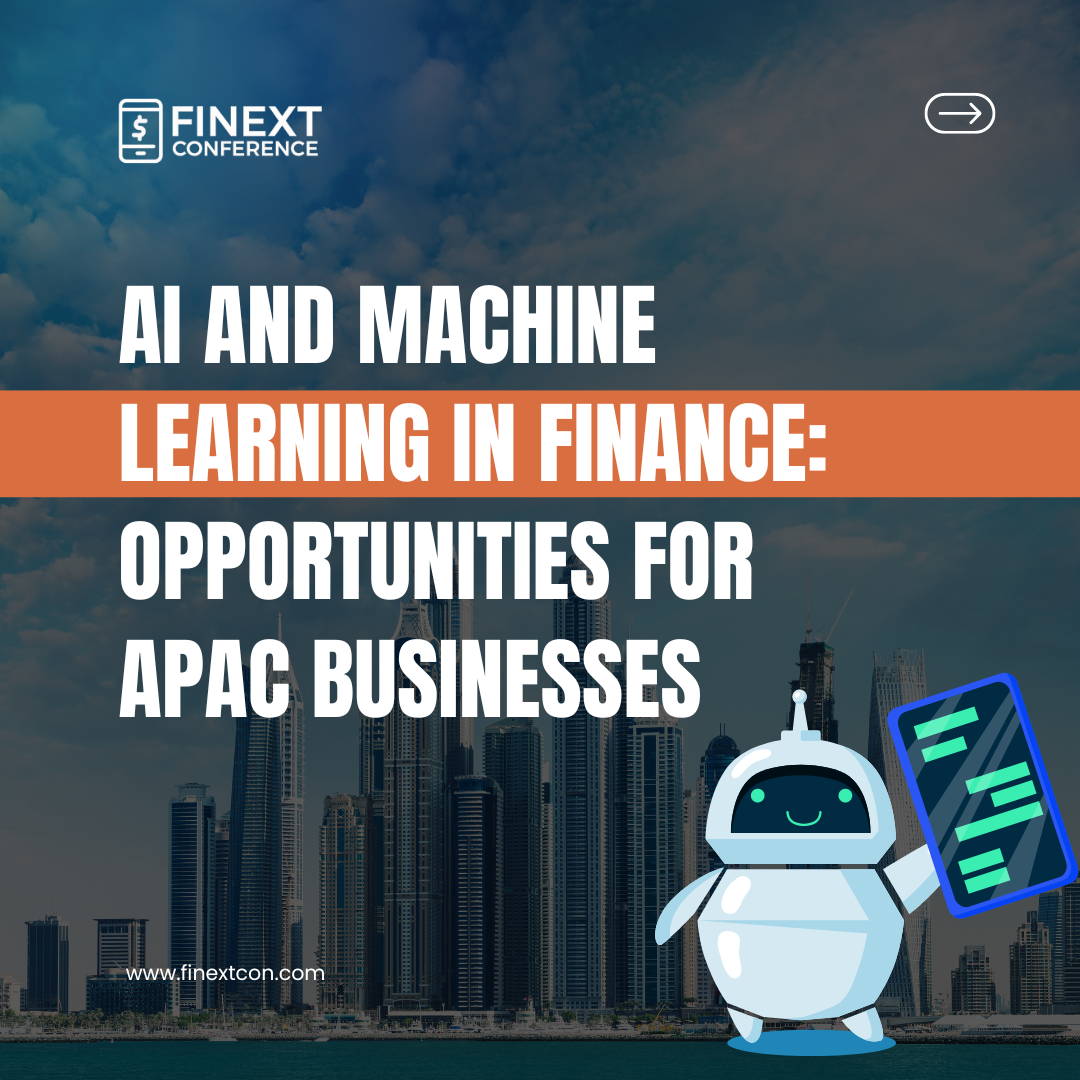The financial technology sector is evolving at lightning speed, redefining how we transact, save, invest, and manage our money. As a platform that celebrates innovation and connects fintech leaders from across the globe, the FiNext Conference 2025 is gearing up to be the industry’s most anticipated event of the year. With Fintech Futures joining as an official media partner, this year’s conference promises to be even more impactful, insightful, and globally resonant. Why FiNext Conference 2025 is the Must-Attend Fintech Event FiNext Conference has become a flagship event for fintech enthusiasts, startups, financial institutions, and investors. Scheduled to take place from 10 – 11 Feburary , the 2025 edition will be hosted in the vibrant city of Dubai—a hotspot for technological advancement and financial innovation. FiNext Conference 2025 Highlights: Fintech Futures Joins the Mission This year, FiNext is proud to announce Fintech Futures as an official media partner. Known for its authoritative voice in financial technology and its coverage of breaking fintech news, Fintech Futures brings a wealth of experience and influence that will enhance the conference’s outreach. Fintech Futures, with its commitment to in-depth analysis and comprehensive industry coverage, will shine a spotlight on the impactful discussions and game-changing innovations that emerge from FiNext 2025. This partnership ensures that the global fintech community can stay updated with the latest insights, news, and trends unveiled at the event. With Fintech Futures on board, the FiNext Conference will reach a wider audience, enabling thought-provoking discussions to resonate across borders. A Sneak Peek at the Key Topics FiNext Conference 2025 will focus on a wide array of topics designed to empower the fintech ecosystem. Attendees can look forward to exploring: What the Partnership Means for Attendees The partnership with Fintech Futures ensures that attendees of FiNext Conference 2025 will benefit from expanded media coverage and greater industry recognition. Whether you’re a startup looking for investment, a financial institution aiming to stay ahead of the curve, or an investor scouting the next big thing, the collaboration guarantees that your story will reach audiences beyond the conference walls. Through live blogs, interviews, and behind-the-scenes features, Fintech Futures will capture the pulse of FiNext Conference 2025, bringing both on-site attendees and online followers up-to-date information and in-depth insights into the discussions shaping the future of finance. Join the Fintech Revolution in Dubai The FiNext Conference 2025, powered by strategic partnerships like the one with Fintech Futures, is more than just an event—it’s a movement. It represents the coming together of visionaries, technologists, investors, and disruptors—all striving to change how the world thinks about and uses money. Dubai, with its ambitious drive to become a global hub for fintech, is the perfect backdrop for this convergence. Attendees will have the opportunity to immerse themselves in a city that is not only embracing technological transformation but also setting the standards for the future. Get Involved Whether you’re looking to showcase your product, connect with like-minded professionals, or simply learn about the latest developments, FiNext Conference 2025 is… Continue Reading FiNext Conference 2025: Fintech Futures Joins as an Official Media Partner
Author: user
Opportunities in Sukuk Investments
Sukuk investments present a unique opportunity for investors seeking ethical and Sharia-compliant financial instruments. Here’s a comprehensive overview of the opportunities that sukuk offers 1. Portfolio Diversification 2. Ethical Investment 3. Growing Market Demand 4. Access to Emerging Markets 5. Stable Returns Linked to Tangible Assets 6. Liquidity 7. Government Support and Regulation 8. Innovative Structures 9. Potential for Green and Social Impact Investments Conclusion Investing in sukuk presents numerous opportunities for both individual and institutional investors looking for ethical, stable, and diversified investment options. As the market continues to grow and evolve, staying informed about new developments will be crucial for maximizing the benefits of sukuk investments.
ICO Holder Joins as a Media Partner for FiNext Awards & Conference Dubai 2025
The financial world is evolving rapidly, and FinextCon is once again set to bring together the most influential leaders, investors, and innovators in the financial technology sector. In a significant development, we are thrilled to announce that ICO Holder, one of the leading sources for blockchain and cryptocurrency news, has joined FinextCon 2025 as a media partner. This partnership marks an exciting collaboration aimed at enhancing the visibility of the event and providing unparalleled coverage of the latest trends in fintech, blockchain, and digital assets. About ICO Holder ICO Holder is a well-established name in the blockchain space, serving as a go-to platform for the latest updates on Initial Coin Offerings (ICOs), crypto regulations, blockchain technology, and all things cryptocurrency. With a mission to provide accurate, timely, and insightful information, ICO Holder has been instrumental in shaping public perception and awareness of the digital assets ecosystem. Their extensive reach and credibility in the crypto community make them a perfect media partner for FinextCon, amplifying our shared mission of education, innovation, and growth in the world of fintech. What This Partnership Means for FinextCon 2025 The partnership with ICO Holder is set to bring several unique benefits to FinextCon 2025, including: 1. Broader Reach in the Crypto and Blockchain Space With ICO Holder’s expertise and influence, FinextCon will reach a larger audience of crypto enthusiasts, investors, and industry leaders. Their in-depth coverage will ensure that key announcements, panel discussions, and event highlights receive the attention they deserve, expanding FinextCon’s impact across the blockchain community. 2. Expert Coverage of Key Insights FinextCon 2024 will host numerous discussions around digital transformation, decentralized finance (DeFi), NFTs, blockchain integration in traditional finance, and the future of payments. ICO Holder’s experienced journalists and analysts will provide expert coverage, ensuring attendees and followers get insightful summaries and exclusive interviews with the most notable voices at the event. 3. Building Momentum in the Blockchain Industry FinextCon is known for bringing together some of the brightest minds in the fintech sector, including representatives from major banks, financial institutions, and fintech startups. With ICO Holder onboard as a media partner, the event will also build momentum in the blockchain and cryptocurrency space. This collaboration will help foster discussions on how blockchain technology is transforming traditional financial services, providing more transparency and efficiency. Highlights to Expect at FinextCon 2025 The FinextCon 2024 conference is set to be the most impactful edition yet, with a line-up that includes: Bridging Fintech and Blockchain: A Shared Vision The collaboration between FinextCon and ICO Holder is an essential step in bridging the fintech and blockchain worlds. With fintech continuously evolving to integrate blockchain solutions, and ICO Holder being at the forefront of crypto reporting, this partnership symbolizes a convergence of traditional and modern finance. It’s a shared vision for a future where decentralized technologies work hand-in-hand with financial systems to provide more inclusive, efficient, and transparent financial services. Join Us for FinextCon 2025! FinextCon 2025 is set to be the premier event of the year… Continue Reading ICO Holder Joins as a Media Partner for FiNext Awards & Conference Dubai 2025
AroundB Joins Finextcon as a Media Partner: A Step Towards Enhancing Global Fintech Engagement
We are thrilled to announce that AroundB has joined Finextcon as an official media partner. As a global fintech event that fosters innovation, thought leadership, and collaboration, Finextcon is excited to partner with AroundB, a renowned blockchain and fintech-focused marketing agency. This collaboration aims to expand our reach, deliver cutting-edge content, and create a more impactful experience for our participants. About AroundB AroundB is a leading full-service marketing agency specializing in blockchain, fintech, and crypto events. With a proven track record of successful campaigns and events, they are well-versed in delivering engaging content, attracting top-tier speakers, and ensuring widespread media coverage. Their deep knowledge of fintech trends, blockchain technologies, and decentralized finance (DeFi) ecosystems makes them an ideal partner for Finextcon. Since its inception, AroundB has established itself as a go-to agency for hosting premier blockchain events worldwide. They provide services ranging from event management to marketing strategy development, social media promotions, and influencer partnerships. Why This Partnership Matters What to Expect from Finextcon 2025 The upcoming edition of Finextcon promises to be the most comprehensive one yet, featuring interactive panels, keynote speeches, and networking opportunities with industry leaders. The inclusion of AroundB as a media partner enhances our capability to deliver premium content, provide insights from top blockchain experts, and engage with fintech professionals worldwide. Key highlights of the event will include: Join Us at Finextcon We are excited about the opportunities that this partnership with AroundB brings to the Finextcon community. Together, we aim to make this event an immersive, informative, and forward-thinking experience for all attendees. Stay tuned for more updates as we count down to the event, and don’t miss the chance to be part of the future of fintech. For more information about registration, sponsorships, or media inquiries, visit our official website. About Finextcon Finextcon is a leading fintech conference that brings together industry leaders, innovators, and entrepreneurs to discuss the future of financial technology. The event serves as a platform to explore groundbreaking ideas, trends, and technologies shaping the fintech landscape.
Coin Edition Joins FiNext Conference as Media Partner: A New Chapter in Fintech Collaboration
The global fintech landscape is ever-evolving, with innovation driving the industry to new heights. As this digital revolution continues, FiNext Conference stands at the forefront, bringing together thought leaders, entrepreneurs, and innovators from around the world to share ideas, foster collaboration, and shape the future of finance. We are excited to announce that Coin Edition is joining FiNext as a media partner, adding a new layer of expertise to our dynamic fintech event. What Coin Edition Brings to the Table Coin Edition, a leading cryptocurrency and blockchain news platform, has been a trailblazer in delivering up-to-date information and insights on digital currencies, decentralized finance (DeFi), blockchain technology, and the overall fintech ecosystem. Known for its unbiased reporting, in-depth analysis, and ability to spotlight emerging trends, Coin Edition has become a trusted voice for both fintech enthusiasts and professionals alike. By joining FiNext as a media partner, Coin Edition will not only enhance the reach of our conference but will also provide an enriched experience for attendees by offering exclusive interviews, live updates, and expert analysis of key fintech topics. Why This Partnership Matters The partnership between FiNext and Coin Edition is a natural fit, given the shared vision of promoting financial innovation and fostering knowledge-sharing. Coin Edition’s strong focus on blockchain and cryptocurrency aligns with the goals of FiNext, where blockchain has been a core topic of discussion in recent years. With the rapid growth of cryptocurrency markets and DeFi platforms, understanding these sectors has never been more critical. Attendees will benefit from Coin Edition’s unique perspective and coverage of these key areas, helping professionals stay informed and adapt to new fintech developments. What to Expect at FiNext with Coin Edition Onboard Strengthening Fintech Conversations As we prepare for another groundbreaking year at FiNext, this partnership with Coin Edition promises to bring fintech conversations to the forefront in new and exciting ways. With cryptocurrency, DeFi, and blockchain playing critical roles in the evolution of finance, having a media partner with a strong foothold in these sectors ensures that all angles of the fintech landscape are covered. We are thrilled to welcome Coin Edition into the FiNext family and look forward to their contributions in helping us highlight the innovations shaping tomorrow’s financial world. Join Us at FiNext! FiNext continues to be the go-to event for fintech professionals, entrepreneurs, and enthusiasts. With media partnerships like this one, our reach expands even further, ensuring that the latest fintech insights, ideas, and developments are shared with a global audience. Stay tuned for more updates, and don’t forget to mark your calendars for an exciting and insightful conference! About FiNext Conference FiNext brings together a global community of fintech professionals and innovators to explore the future of finance. With a focus on technology, entrepreneurship, and financial inclusion, FiNext aims to inspire new ideas, drive collaboration, and accelerate innovation in the financial industry. About Coin Edition Coin Edition is a premier media platform specializing in cryptocurrency, blockchain, and fintech news. By delivering timely, accurate, and… Continue Reading Coin Edition Joins FiNext Conference as Media Partner: A New Chapter in Fintech Collaboration
Jagran New Media Joins Finextcon as an Official Media Partner: A New Era of Financial Insights
We are excited to announce that Jagran New Media has officially joined Finextcon as a prestigious media partner. As we prepare to host another transformative edition of Finextcon, this partnership promises to enhance our event’s coverage and bring unparalleled value to attendees, participants, and the entire financial ecosystem. Who is Jagran New Media? Jagran New Media, a division of Jagran Prakashan Limited, is one of the most influential digital media platforms in India. With an extensive network of digital properties, including Jagran.com, Onlymyhealth.com, and JagranJosh.com, they provide content across various domains such as news, health, education, lifestyle, and more. Their ability to reach millions of readers across India and the globe makes them a key player in the digital media landscape. With Jagran’s expertise in delivering timely and relevant content, our collaboration will not only expand Finextcon’s reach but also provide deep insights into emerging financial trends for our global audience. What This Partnership Means for Finextcon 2025 Finextcon is known for being at the forefront of fintech innovations, financial services, and emerging trends. With Jagran New Media’s backing, we expect to amplify the conversation surrounding fintech, blockchain, AI in finance, and global financial trends. Here’s what you can expect: Finextcon: The Ultimate Convergence of Finance and Technology Finextcon has long been regarded as one of the most important gatherings of industry leaders, fintech pioneers, and finance professionals. With a focus on cutting-edge innovations in digital payments, cryptocurrency, financial inclusion, and more, the conference aims to shape the future of finance. Our partnership with Jagran New Media reinforces our commitment to bridging the gap between traditional financial institutions and emerging fintech innovations. As we welcome thousands of attendees from across the world, this collaboration will help drive meaningful conversations and forge new connections in the financial space. What to Expect at Finextcon 2025 Conclusion With Jagran New Media as our official media partner, Finextcon 2025 is set to be bigger, better, and more impactful than ever before. We are thrilled to share this journey with a partner that shares our vision of driving innovation and delivering high-quality content to an ever-growing audience of finance professionals and fintech enthusiasts. Stay tuned as we continue to unveil exciting announcements, exclusive content, and everything you need to know about Finextcon 2025. Be part of the movement that’s shaping the future of finance! Join us at Finextcon 2025, where the world of finance meets the future of technology, and where partnerships like ours with Jagran New Media will drive transformative discussions and innovations.
FiNext Conference Welcomes Web3 TV as Media Partner
The world of fintech is evolving rapidly, with blockchain and decentralized finance (DeFi) taking center stage. As a leader in showcasing the latest fintech innovations, FiNext Conference is proud to announce Web3 TV as an official media partner for the upcoming event. Web3 TV, a premier media outlet focused on blockchain, cryptocurrency, and decentralized technologies, will play a crucial role in covering key insights, discussions, and industry-changing developments from the event. FiNext Conference: A Hub of Innovation FiNext Conference has grown into one of the foremost gatherings for fintech professionals, investors, startups, and industry leaders. By providing a platform where cutting-edge innovations meet established financial systems, it has positioned itself as a key event for those looking to stay ahead of the curve in finance and technology. This year, the conference promises to dive deeper into the world of Web3, blockchain, decentralized finance, and the overall transformation of the financial sector. Web3 TV: Amplifying the Future of Decentralized Finance Web3 TV has built a solid reputation as a trusted source of news and analysis in the world of decentralized finance. Covering topics from blockchain innovations to cryptocurrency trends and NFT developments, Web3 TV is dedicated to pushing forward the conversation around the next era of the internet—Web3. As a media partner, Web3 TV will provide: What This Partnership Means for FiNext Conference Attendees The collaboration between FiNext Conference and Web3 TV will amplify the experience for both in-person and online audiences. Attendees can expect enhanced media coverage, ensuring that the knowledge and innovations shared at the event reach a global audience. Whether you’re a fintech startup, investor, or simply passionate about the future of finance, this partnership will provide valuable content long after the conference ends. What to Expect at FiNext Conference Conclusion FiNext Conference is thrilled to partner with Web3 TV, bringing next-generation fintech, blockchain, and Web3 innovations to the forefront. With Web3 TV’s coverage, expect unparalleled insights into how these technologies will shape the future of global finance. Whether you are attending in person or following remotely, stay tuned for Web3 TV’s coverage to catch the latest developments from FiNext Conference. The future of finance is now, and with Web3 TV on board, it’s going to be a game-changing event.
AI and Machine Learning in Finance: Opportunities for APAC Businesses
Artificial Intelligence (AI) and Machine Learning (ML) are rapidly transforming the financial services industry in the Asia-Pacific (APAC) region. As APAC businesses embrace these technologies, they are unlocking significant opportunities to drive growth, enhance customer experiences, and gain a competitive edge. Embracing AI and ML in APAC Finance APAC businesses are recognizing the immense potential of AI and ML. A recent survey found that 92% of midmarket companies in APAC identify generative AI as a key business priority. Another study revealed that 51% of APAC companies have already adopted generative AI, with Singapore emerging as the global leader at 59%. Driving Business Efficiency and Growth AI and ML offer APAC finance firms numerous benefits, including: Challenges and Considerations While the opportunities are vast, APAC businesses must also navigate challenges and considerations when implementing AI and ML: Conclusion APAC businesses that embrace AI and ML in finance are poised to drive growth, enhance customer experiences, and gain a significant competitive advantage. By addressing challenges, prioritizing data quality, and building customer trust, APAC finance firms can unlock the full potential of these transformative technologies.
FiNext Conference 2025 Welcomes Corum8 as a Media Partner
The FinTech industry is evolving at lightning speed, and FiNext Conference 2025 promises to be a game-changer in shaping the future of financial innovation. Set to take place in one of the world’s leading financial hubs, FiNext Conference has become a premier platform for thought leaders, entrepreneurs, and businesses to connect, collaborate, and push the boundaries of what FinTech can achieve. As FiNext continues to grow, we are thrilled to announce that Corum8 will be joining the event as an official media partner for 2025. This collaboration aims to amplify the conversation around cutting-edge financial technology and provide unparalleled insights into the latest developments shaping the industry. Who is Corum8? Corum8 is a leading global digital media outlet, specializing in delivering in-depth news, analysis, and trends within the financial services and technology sectors. With a dedicated focus on FinTech, blockchain, digital payments, and emerging technologies, Corum8 has earned its reputation as a trusted source of information for decision-makers, innovators, and investors worldwide. Through its extensive coverage and network of industry experts, Corum8 consistently offers readers expert commentary on critical issues affecting the financial sector—from regulatory changes to market trends and technological advancements. What to Expect from FiNext Conference 2025 FiNext Conference 2025 will once again serve as a nexus of innovation and leadership in FinTech. Featuring over 500 attendees from across the globe, the event will include: With Corum8’s participation, FiNext 2025 is poised to reach a broader audience, enhancing coverage of these pivotal conversations and developments. Corum8’s Role as a Media Partner As a media partner, Corum8 will play a critical role in documenting the key moments of FiNext Conference 2025. Corum8 will provide real-time updates, exclusive interviews, and comprehensive event coverage through its digital platforms. Attendees and global audiences alike can look forward to: Why Corum8 is the Ideal Partner The partnership between FiNext and Corum8 is a natural fit. FiNext is known for bringing together the brightest minds in the FinTech space, while Corum8 excels at providing critical analysis and bringing these stories to a global audience. Corum8’s experience in highlighting major shifts within FinTech aligns perfectly with FiNext’s mission to accelerate innovation and foster meaningful connections in the industry. Through this collaboration, we aim to amplify the event’s key takeaways, ensuring that the thought leadership and innovation discussed at FiNext Conference 2025 will resonate long after the event concludes. Looking Forward As the financial world continues to undergo digital transformation, FiNext Conference 2025 will undoubtedly play a pivotal role in shaping its trajectory. With Corum8 as a media partner, attendees can expect enhanced coverage and expert insights that will deepen their understanding of the trends and innovations that lie ahead. Stay tuned for more updates as we get closer to FiNext 2025, and don’t miss out on what promises to be an unforgettable event in the world of financial technology! Mark your calendars and be part of the future of FinTech!
CryptoNewsZ Joins FiNext Conference 2025 as an Official Media Partner
We are excited to announce that CryptoNewsZ, a leading global news platform specializing in cryptocurrency, blockchain, and fintech, has officially joined FiNext Conference 2025 as a media partner. With this partnership, FiNextCon and CryptoNewZ are set to bring the latest fintech innovations, industry insights, and groundbreaking developments in blockchain technology to a wider audience. About CryptoNewsZ CryptoNewsZ is a prominent voice in the world of digital currencies and blockchain technology. Known for delivering comprehensive coverage of the latest trends in cryptocurrency, decentralized finance (DeFi), NFTs, and fintech, CryptoNewsZ reaches millions of readers across the globe. Their team of expert analysts and reporters ensures that readers stay informed about the fast-paced developments in the crypto world, from regulatory updates to emerging market opportunities. Since its inception, CryptoNewsZ has been a trusted source of information for crypto enthusiasts, investors, and industry professionals. With a strong emphasis on providing reliable, real-time news, CryptoNewsZ is the go-to platform for those looking to navigate the complex world of digital finance. What This Partnership Brings to FiNext Conference 2025 As a media partner, CryptoNewsZ will provide in-depth coverage of the FiNext Conference 2025, ensuring that every exciting moment, from keynote speeches to panel discussions, reaches crypto and fintech audiences around the world. Here’s what you can expect from this collaboration: Why CryptoNewZ is the Perfect Media Partner FiNextCon brings together the most influential minds in the fintech, finance, and blockchain industries, and CryptoNewsZ is perfectly positioned to amplify the conference’s mission of fostering innovation in financial technology. As a respected media outlet in the crypto and blockchain space, CryptoNewsZ’s global reach will ensure that the ideas and solutions shared at FiNextCon 2025 have a far-reaching impact. The collaboration will also spotlight the transformative role of cryptocurrency and blockchain in shaping the future of finance, making FiNextCon a must-attend event for those keen to stay ahead of the curve in these rapidly evolving sectors. What to Expect at FiNextCon 2025 FiNext Conference 2025 promises to be a landmark event, featuring keynotes from industry leaders, panel discussions on the future of fintech, blockchain advancements, and the integration of decentralized technologies into traditional financial systems. Topics will include: With CryptoNewsZ as our media partner, the conference’s critical discussions and innovations will reach an even broader, engaged audience, helping to shape the conversation around the future of finance.









